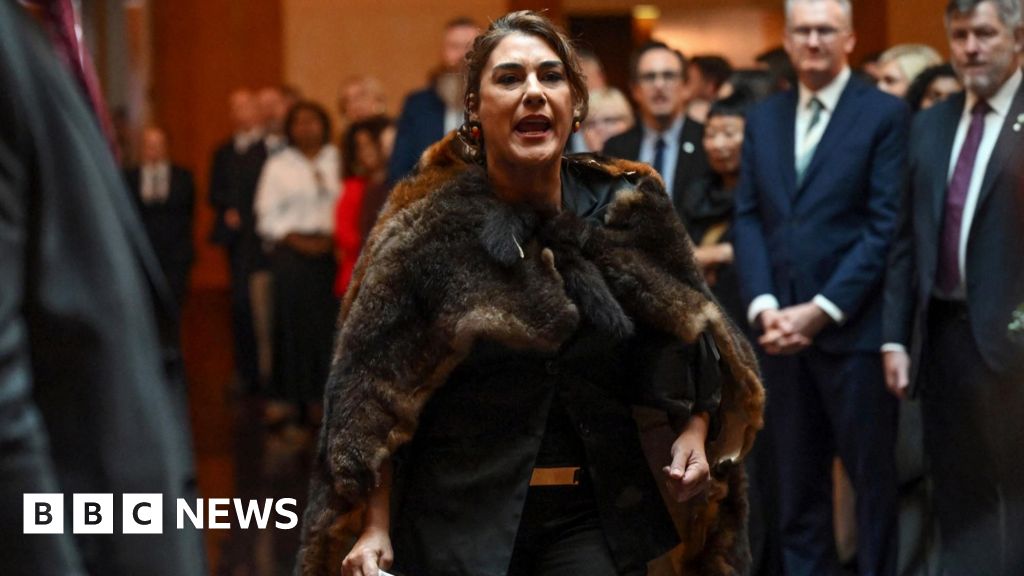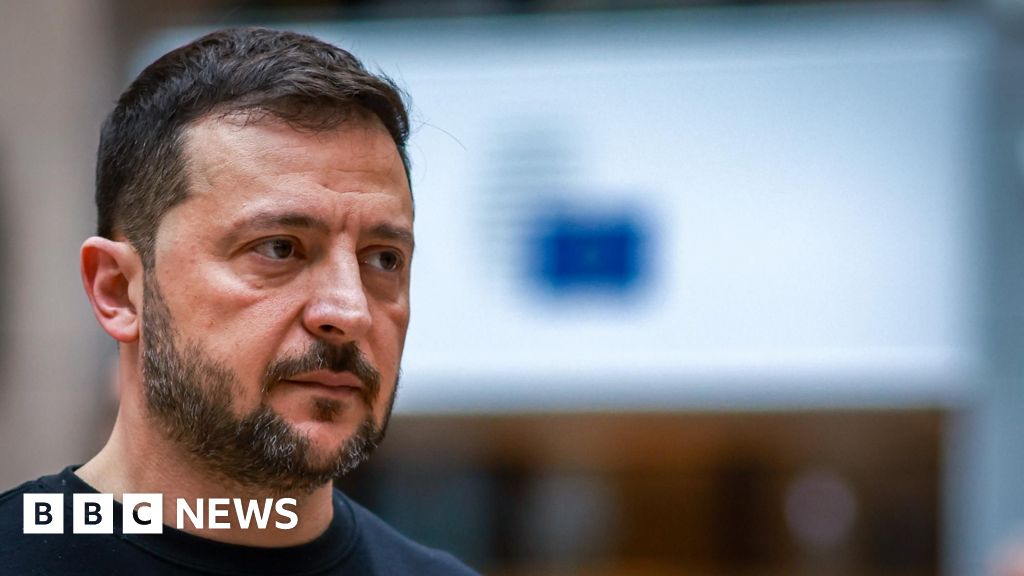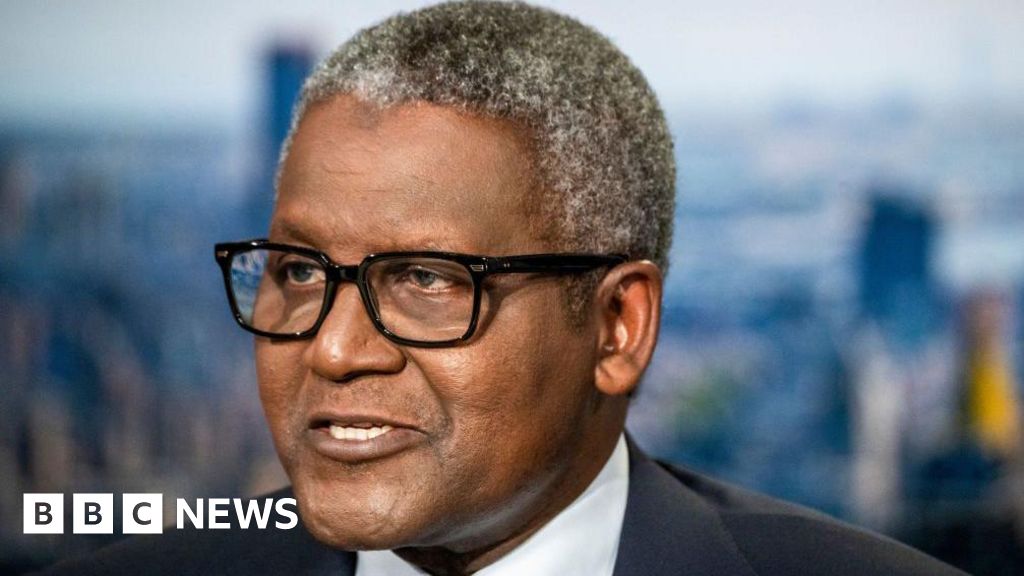ARTICLE AD BOX
By Swaminathan Natarajan and Patrick Jackson, London
BBC News
Image source, Lhakpa Sherpa
Image caption,Lhakpa Sherpa on her way to Everest for the tenth time
Of all the obstacles in Lhakpa Sherpa's life, Mount Everest is only the most obvious. At the age of 48, she has just climbed it for the 10th time.
Her achievement, reported by her brother and confirmed by a Nepalese official, makes her the first woman to do so.
The Nepalese single mother was born in a cave, had no formal education and worked as a janitor.
She last made the 8,848.86m (29,031.69ft) ascent in 2018.
"I felt like I'd reached my dream when I reached Everest's summit for the first time," she told the BBC ahead of Thursday's climb.
"I thought to myself, 'No more just being a housewife!'
"I felt like I'd changed Sherpa culture, the status of Sherpa women and Nepali women. I enjoyed being outside of my home and I wanted to share that feeling with all women."
News of her 10th summit was broken by her brother Mingma Gelu Sherpa, who said she had reached the top at 06:15 (00:30 GMT). Nepali tourism official Bhishma Kumar Bhattarai confirmed the report for Reuters news agency.
Speaking from base camp earlier, her youngest daughter Shiny, 15, told the BBC she was excited and keenly watching her mother's progress.
"I look up to my mum," she said. "She has achieved so much even though she had nothing."
Image source, Lhakpa Sherpa
Image caption,Lhakpa Sherpa packs her bags before starting a trek (file photo)
However, Lhakpa's hard work and achievements have yet to translate into wealth and recognition.
She began life in a village more than 4,000m (13,000ft) above sea level in the Makalu region of eastern Nepal. She is a member of the Sherpa ethnic group, descended from nomadic Tibetans, who are used to living in hostile high altitudes.
"I was born in a cave," she said, breaking into laughter. "I don't even know my date of birth. My passport says I am 48."
"I remember having to walk for hours, sometimes carrying my brothers to school, only to be turned away when I got there. At the time, girls were not allowed to go to school."
Agriculture was the mainstay for her village, which had no electricity. What it did have was a certain magical neighbour.
"I grew up right next to Everest," she recalled. "I could see it from my home. Everest continues to inspire and excite me."
Since the first conquest of the mountain in 1953, more and more people have tried to scale the peak every year. Those who do so inevitably hire Sherpa guides and porters. But some Sherpas, like Lhakpa, set out to become mountaineers in their own right.
It was not an easy transition. Lhakpa's parents didn't back her.
"My mum said I would never get married," she told the BBC. "She warned me that I would become too masculine and undesirable. The villagers told me that it's a man's job and I would die if I tried it."
She brushed aside those concerns and made it to Everest's highest ridge in 2000. In 2003, she became the first woman to scale Everest three times - and more records followed.
During her 2003 climb, she was joined by her brother and sister, becoming the first three siblings simultaneously on an 8,000-metre-high mountain. The Guinness Book of World Records recognised the feat.
Image source, Lhakpa Sherpa
Image caption,After reaching the summit, Lhakpa (centre) says she usually thinks of her children Sunny (far left) and Shiny (far right)
She then married US-based Romanian-born climber George Dijmarescu, and scaled the peak with him five times.
After getting married she moved to the US, but the relationship ended in acrimonious divorce in 2015.
Lhakpa now lives in the US state of Connecticut with their two daughters. She also has a son from a previous relationship.
During her initial expeditions she used to plant the Nepali flag at the summit. This time, she was carrying the US flag.
But her achievements failed to attract media attention and sponsors. For many years she was living unrecognised, and working for minimum wage.
"My jobs included taking care of the elderly, house cleaning and dish washing," she said.
Image source, Lhakpa Sherpa
Image caption,Lhakpa is known as Everest Queen, but in reality she often struggled to pay for essentials
"I didn't make much money. I couldn't afford to buy clothes or pay for haircuts. I just had to focus on taking care of my children and then hope I had enough to return to Everest."
But she maintained a passion for climbing. She went up twice as a guide, and on some occasions friends and family helped support her trips.
Mountaineering was "not very rewarding compared with the risks involved", she said, but she believes it helped her escape what otherwise would have been a mundane life in the village.
Financially, things began to change after she learned to speak English well. She gave interviews, and spoke at events.
She got a sponsor for her ninth scale of the summit. But this time, her 10th, she raised the money through crowdfunding.
Image source, Getty Images
Image caption,Lhakpa says she felt as though she had changed Sherpa culture by reaching the summit of Mount Everest
Lhakpa always starts her trek with a customary prayer. Safety is her biggest priority.
More than 300 people have died while trying to scale Mount Everest, so Lhakpa and her team have to pass bodies preserved by ice.
In 2014, 16 Sherpa guides were killed during an avalanche. In 2015, another avalanche killed 21 people.
"The mountain decides the weather," she said. "During bad weather I would just wait. We can't wrestle a mountain."
As she inches closer to the peak, oxygen drops.
"Past 8,000m, I feel like a zombie," she said. "You can't eat and everything is frozen. You have to climb at night so that you can descend from the summit in the daylight. It's scary."
More than 6,000 climbers have scaled Mount Everest. After a very demanding and assiduous trek, a climber gets very little time at the top.
Lhakpa can only spend five to 10 minutes at the highest point.
"First I will take pictures," she said. "I usually think about my friends, my family, my parents, my daughters and many others who supported me.
"I also think about a safe descent."
Lhakpa took both her daughters to the Makalu base camp. She is pleased her eldest daughter, Sunny, is interested in climbing.
Her other daughter, Shiny, grew up in the US and does not share the same nostalgia for Everest. However, she says she gets emotional whenever she visits her ancestral home. She wants to wait a few more years to decide her career.
Lhakpa, though, has no plans to retire after this season.
She wants to scale K2, the world's second-highest peak. She is also thinking of climbing Everest in the future with her son and daughters, because "mountain climbing is my passion and this is what I want to do."
"I've had a challenging life," she added. "Mountains made me happy and relaxed. I will never give up. I want young women not to give up."

 2 years ago
23
2 years ago
23








 English (US)
English (US)